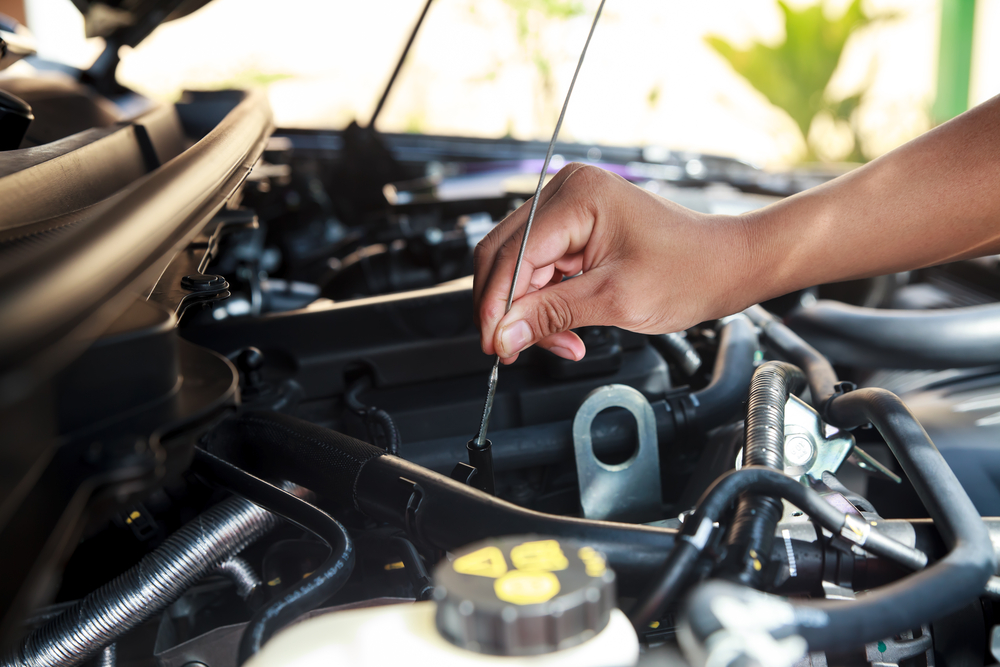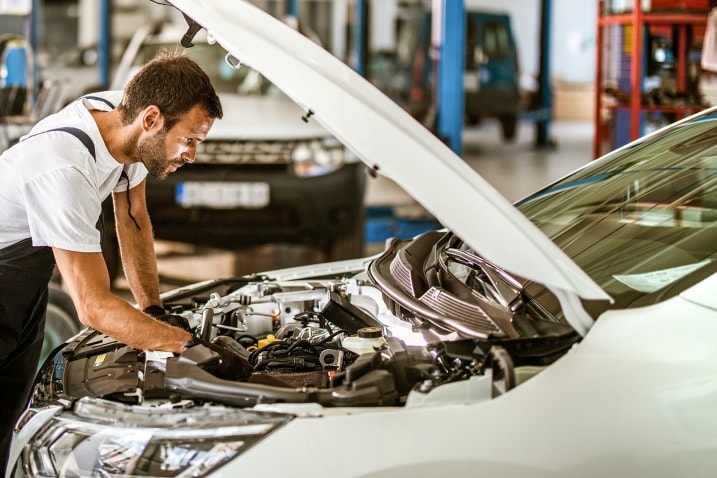All Categories
Featured

Vehicle liquids play crucial duties in ensuring smooth operation, safety, and durability. Listed below, we'll explore the value of monitoring and keeping your lorry's liquids and tips for doing so effectively.
- Engine Oil: Securing Crucial Components. Engine oil makes sure that the relocating parts of your engine stay moisturized, minimizing rubbing and protecting against overheating. Over time, engine oil breaks down or ends up being polluted, decreasing its performance. Without proper lubrication, engine components can wear promptly, resulting in reduced performance or total failing.
Exactly How to Preserve: Inspect the oil level using the dipstick and complete if essential. Follow your automobile's solution routine for oil adjustments, normally every 3,000 to 7,500 miles, depending upon the kind of oil and your driving routines. 2. Coolant: Handling Engine Temperatures. Coolant, or antifreeze, aids regulate your engine's temperature, stopping getting too hot in summertime and freezing in winter. As it circulates, coolant takes in excess warm and eliminates it with the radiator. Gradually, impurities can construct up, or the liquid may deteriorate, minimizing its performance.

How to Preserve: On a regular basis examine coolant levels in the storage tank and evaluate for leakages or discoloration. Flush and change coolant as recommended, typically every two to five years. 3. Transmission Liquid: Smooth Gear Procedure. Transmission liquid oils the transmission system and makes sure smooth equipment shifts. A well-maintained transmission liquid prevents overheating and shields interior components from wear. Falling short to keep this fluid can lead to expensive repair work or replacements.
Exactly How to Keep: Check the liquid degrees (if your vehicle has a dipstick for transmission fluid) and check its shade. Charred or dark fluid suggests it's time for an adjustment, often every 30,000 to 60,000 miles. 4. Brake Fluid: Ensuring Security. Brake fluid is essential for moving pressure from your foot on the brake pedal to the braking system, allowing your car to stop efficiently. In time, brake liquid can absorb dampness, minimizing its boiling factor and jeopardizing stopping performance.
How to Maintain: Check the brake fluid level and problem. If it shows up dark or unclean, have it replaced. Several manufacturers advise transforming brake liquid every 2 years or as needed. 5. Power Steering Fluid: Easy Ability To Move. Power guiding liquid permits smooth and uncomplicated guiding. Low degrees or polluted fluid can make guiding tough, boosting the risk of accidents.
Just How to Keep: Inspect the fluid regularly and fill up if degrees are reduced. Keep an eye out for leaks, which could bring about guiding system damages if unsettled. 6. Windscreen Washer Fluid: Clear Exposure. Though not connected to efficiency, windshield washer liquid is essential for preserving exposure. It aids maintain the windshield tidy, especially during poor weather or when dust collects.

How to Maintain: Refill the tank as required and use washer liquid made for your environment to protect against freezing or streaking. Ideal Practices for Fluid Upkeep. Adhere to the Producer's Set up: Refer to your vehicle's owner manual for maintenance periods certain to your cars and truck. Monitor for Leaks: Detecting liquid leaks early can avoid severe damages. Search for puddles or stains under your vehicle. Use the Correct Fluids: Always make use of liquids advised by your automobile's manufacturer to avoid compatibility issues. Take Notice Of Warning Signs: Dashboard warning lights, strange scents, or uncommon efficiency can suggest fluid-related problems. The Advantages of Routine Liquid Checks. Boosted Efficiency: Fluids in excellent condition assistance all systems run efficiently. Expanded Life expectancy: Correct lubrication and air conditioning prevent premature damage on elements. Improved Security: Brake fluid and coolant are important for risk-free driving. Cost Savings: Attending to fluid problems early can protect against costly repairs later. Final thought. Checking and preserving your car's fluids is a vital but straightforward component of auto ownership. By devoting time to this crucial maintenance, you guarantee your vehicle stays dependable, safe, and efficient for years ahead. Normal fluid checks aid protect against break downs and offer you satisfaction when driving. Whether it's oil, coolant, or brake fluid, remaining proactive with maintenance is the essential to long-lasting car health and wellness.
Latest Posts
Boost Your Home's Outside with Weathercraft's Home siding Solutions
Published en
1 min read
Discover WyHy Federal Credit Union – Trusted Financial Solutions for Your Financial Success
Published en
1 min read
Discover Affordable Auto Repairs with Montclare’s Exclusive Service Specials
Published en
1 min read
More
Latest Posts
Boost Your Home's Outside with Weathercraft's Home siding Solutions
Published May 26, 25
1 min read
Discover WyHy Federal Credit Union – Trusted Financial Solutions for Your Financial Success
Published May 24, 25
1 min read
Discover Affordable Auto Repairs with Montclare’s Exclusive Service Specials
Published May 23, 25
1 min read